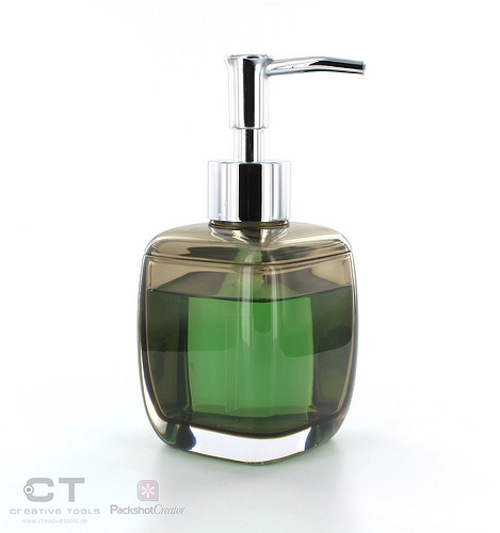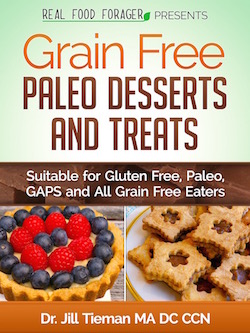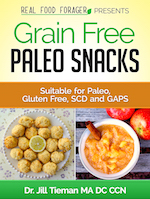That antibacterial hand soap you think is important to keeping you healthy, may be doing just the opposite. Triclosan is the ingredient added to soaps and other products such as clothing, kitchenware, furniture, and toys. It also may be added to personal care items such as body washes, toothpastes, and some cosmetics.
Several recent studies have come out that indicate that it is not the benign substance first thought. In fact, it is a highly toxic pesticide that has become ubiquitous in our environment and our bodies through widespread use.
Triclosan is In Everything
Companies have jumped on the bandwagon of antibacterial products and have put it in everything — it’s in baby toys and kitchen utensils as well as personal care products. This increases human exposure to it exponentially. These companies benefit from the public misconception that we must kill all bacteria in order to be well.
However, an article in the journal Clinical Infectious Diseases 2007, entitled Consumer Antibacterial Soaps: Effective or Just Risky?, concludes that antibacterial soaps show no health benefits over plain soaps.
This follows a recommendation by the FDA Nonprescription Drugs Advisory Committee in 2005 in a statement that antibacterial soaps and washes are no more effective than regular soap and water in fighting infections and may not be worth the risk of spawning resistant bacteria.
Industry Representatives Object
Representatives of soap and detergent companies say their products live up to their labels, which claim that they significantly reduce the presence of germs on the hands.
“We believe that the benefit of reducing harmful germs on the skin is apparent… We are concerned that consumers’ access to these products might be limited in some way,” said an industry rep.
Of course he is concerned. When people realize how toxic it is, they will stop using it.
Triclosan has been Found in Body Fluids
Triclosan has been found in human urine, as well as in blood and breast milk and umbilical cord blood. In 2008, the Centers for Disease Control’s National Health and Nutrition Examination Survey (NHANES) report found triclosan in the urine of 75 percent of the U.S. population.
This can’t be good.
Triclosan Alters Hormone Regulation in Animals
A study published in Toxicoological Science in 2009, found that exposure to triclosan substantially decreased levels of testosterone and thyroxine, (an important thyroid hormone), in young male rats.
Another study published in the same journal, Toxicological Science in 2010 found that triclosan affected estrogen-mediated responses in the pubertal and weanling female rat and also suppressed thyroid hormone.
You can draw your own conclusions about the effects on small mammals as it pertains to humans.
Fetal Growth and Development
This study published in Environmental Health Perspectives in 2011 reveals high levels of triclosan in pregnant women. Using a nationally representative sample of the United States population from the NHANES 2003-2004 data, researchers found triclosan to be more highly concentrated in pregnant women than in the non-pregnant population.
Other studies in bacteria have raised the possibility that triclosan contributes to making bacteria resistant to antibiotics. We all know at this point, that antibiotic resistance is a HUGE problem in this country.
Allergies
In a study published in the journal Allergy, November 2012, triclosan exposure and allergic sensitization in Norwegian children was investigated. The researchers found that triclosan concentrations were associated with allergic sensitization, especially inhalant and seasonal allergens, rather than food allergens.
They concluded that these results are consistent with recent findings in other studies and provide additional evidence for an association between triclosan and allergy.
The authors indicate that additional research is needed to clarify the precise mechanism by which triclosan influences allergic sensitization.
The link between triclosan and allergic sensitization is difficult to explain, given that little information is available from experimental data on the mechanism of triclosan in relation to allergic disease outcomes.
Whether we understand the mechanism or not, children are becoming more and more allergic in recent years and it can be life threatening.
Toxic Breakdown Products
In the Journal of Environmental Science and Health in 2010, Fang reported that triclosan was found in finished drinking water, surface water, wastewater, and environmental sediments, as well as in the bile of wild fish, indicating extensive contamination of aquatic ecosystems.
A study published in the Journal of American Water Works Association in 2009 found triclosan to be extremely toxic to algae which in turn will affect the population of aquatic creatures that feed upon it.
According to the EPA’s Targeted National Sewage Sludge Survey triclosan was detected in 92 percent of sewage sludge samples collectedfrom across the United States.
Phasing Out Triclosan
Beyond Pesticides and Food & Water Watch are two organizations that are actively involved in a campaign to phase our tricolsan. Studies have increasingly linked Triclosan (and its chemical cousin triclocarban), to a wider range of adverse health and environmental effects than previously disclosed — including skin irritation, allergy susceptibility, endocrine disruption to antibiotic resistance, tainted water, dioxin contamination and destruction of fragile aquatic ecosystems.
If you have been reading this blog for a while you know that I am in favor of supporting our beneficial bacteria and the microbiome we house in our gut. Using a substance such as triclosan is simply counterproductive and clearly unnecessary.
The Solution
Stop using any antibacterial soap product. Check the ingredients in your personal care products. Better yet, make your own personal care products.
Here is a new e-book called DIY Organic Beauty Recipes from Mommypotamus that will teach you how to easily make your own, completely natural products. It’s cost effective and fun as well!












